O Captain! My Captain!
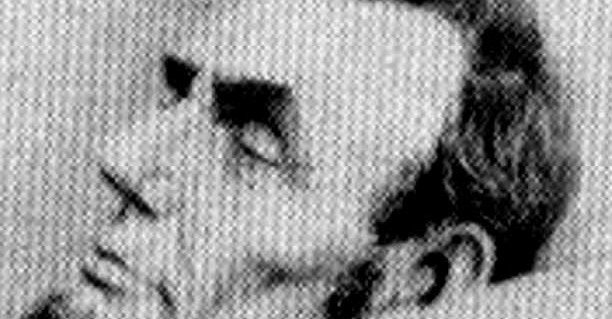
Post mortem image taken by John B. Bachelder
Bad Night at Ford’s Theater, Good Friday, April 14, 1865.
Our great pal Torrie reminds us that since 1865, Good Friday has fallen on April 14 only in the years 1876, 1911, 1922, 1933, 1995 and 2006. And now again. It marks the seventh such Good Friday since a Great Man was felled by an assassin’s pistol, less than a week after the Confederate surrender had restored the Union of the American States.
As citizens of a world in which America has played such a dominant part for over a century now, we all have favourite Presidents, whether we voted for them or not. The Varnished Culture‘s personal favourite would have to be that most cultured and brilliant empire-builder, Thomas Jefferson. But Abraham Lincoln (12 February 1809 – 15 April 1865) would have to be in everyone’s top four, whether you are Republican, Democrat or Independent. Whilst he was obviously no saint, and seemingly not even very presidential at times, his particular task was the most formidable faced by any President since Washington. The fact is, he came into office as a compromise candidate when the country was busily tearing itself apart. Seven Southern States had already declared secession before his inauguration. On his first day at work he had to decide whether to fortify Sumter, thus sparking the outbreak of civil war. He crafted a war cabinet (famously defined in the classic book by Doris Kearns Goodwin, as a Team of Rivals), and chose to stand on the high ground in an attempt to save the Union. Civil Wars are notoriously uncivil, but the American Civil war destroyed more than half a million souls.
On 1 January 1863, almost two years into the war, with victory and defeat in the balance, Lincoln took a grand punt. He issued the Emancipation Proclamation, declaring as law that “all persons held as slaves are, and henceforward shall be free”. That meant the over three-million negro slaves in the Confederate States. Lincoln was no lettuce leaf – he meant it, and whilst it was a decision he took alone (against opposition from his own cabinet), whilst it exacerbated an already perilous military situation, ultimately this revolutionary bit of presumption emboldened the Union and generated ripples within the Confederacy. After the great Union victory at Gettysburg in July 1863, Lincoln gave his greatest, most eloquent, concise and famous speech:
“Four score and seven years ago our fathers brought forth on this continent, a new nation, conceived in Liberty, and dedicated to the proposition that all men are created equal. Now we are engaged in a great civil war, testing whether that nation, or any nation so conceived and so dedicated, can long endure. We are met on a great battle-field of that war. We have come to dedicate a portion of that field, as a final resting place for those who here gave their lives that that nation might live. It is altogether fitting and proper that we should do this. But, in a larger sense, we can not dedicate—we can not consecrate—we can not hallow—this ground. The brave men, living and dead, who struggled here, have consecrated it, far above our poor power to add or detract. The world will little note, nor long remember what we say here, but it can never forget what they did here. It is for us the living, rather, to be dedicated here to the unfinished work which they who fought here have thus far so nobly advanced. It is rather for us to be here dedicated to the great task remaining before us—that from these honored dead we take increased devotion to that cause for which they gave the last full measure of devotion—that we here highly resolve that these dead shall not have died in vain—that this nation, under God, shall have a new birth of freedom—and that government of the people, by the people, for the people, shall not perish from the earth.”*
With Lincoln re-elected President for a second term, the Civil War over, and reconstruction underway, an exhausted President had obviously earned the right to a little R & R. He chose, unfortunately, to attend a performance of Our American Cousin, an undistinguished comedy, at Ford’s Theater, on Good Friday, April 14,1865. The Lincolns clattered to 10th Street from the White House and entered the flag-bedecked presidential box, to the tune of Hail to the Chief and tumultuous applause. Lincoln bowed and waved, smiling happily in a moment of genuine triumph (an eerie presage to the death of RFK 100 years or so later). Then he settled down with wife Mary Todd Lincoln, their friend Clara Harris and her fiancé, Major Henry Rathbone, to enjoy the play.
John Wilkes Booth, an actor and fanatical booster of the Confederate cause, had long planned to take a radical step in aid of that effort. The day before Good Friday, he had attended a dress rehearsal of Our American Cousin, to perform a little rehearsal of his own. On the fateful day, he was back at the theater bright and early. About 13 minutes past 10 o’clock that evening, he was admitted to the Presidential Box and promptly shot Lincoln in the back of the head. Stabbing Major Rathbone, who attempted to remonstrate and restrain him, he jumped messily onto the stage, held up a knife, yelled ‘Sic semper tyrannis’ and ran off to his ultimate and ignominious end.
Abraham Lincoln lingered-on for 9 hours and it was not until after 7.22 am on 15 April,1865 that his Cabinet colleague, Edwin Stanton, could declare: “Now he belongs to the ages.”
From then on, Presidents got a slightly better protective service, although, as Michael Corleone said, “If anything in this life is certain, if history has taught us anything, it’s that you can kill anyone.”
In Team of Rivals (2005) at page 748, Doris Kearns Goodwin cites the opinion of another big man, Leo Tolstoy: “Lincoln was a humanitarian as broad as the world. He was bigger than his country – bigger than all the Presidents together.”
Walt Whitman, himself a fervent Lincoln fan, appropriately chose a Nelsonian image to commemorate the great departed:
“O Captain! my Captain! our fearful trip is done,
The ship has weather’d every rack, the prize we sought is won,
The port is near, the bells I hear, the people all exulting,
While follow eyes the steady keel, the vessel grim and daring;
But O heart! heart! heart!
O the bleeding drops of red,
Where on the deck my Captain lies,
Fallen cold and dead.”
[*H. L. Mencken correctly observed that the speech, though ‘stupendous.’ was nevertheless illogical in the sense that government of the people, by the people, and for the people, actually perished after Gettysburg – as far as the South was concerned.]Leave a comment...
While your email address is required to post a comment, it will NOT be published.

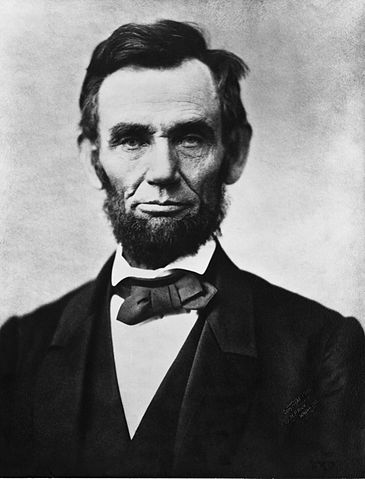
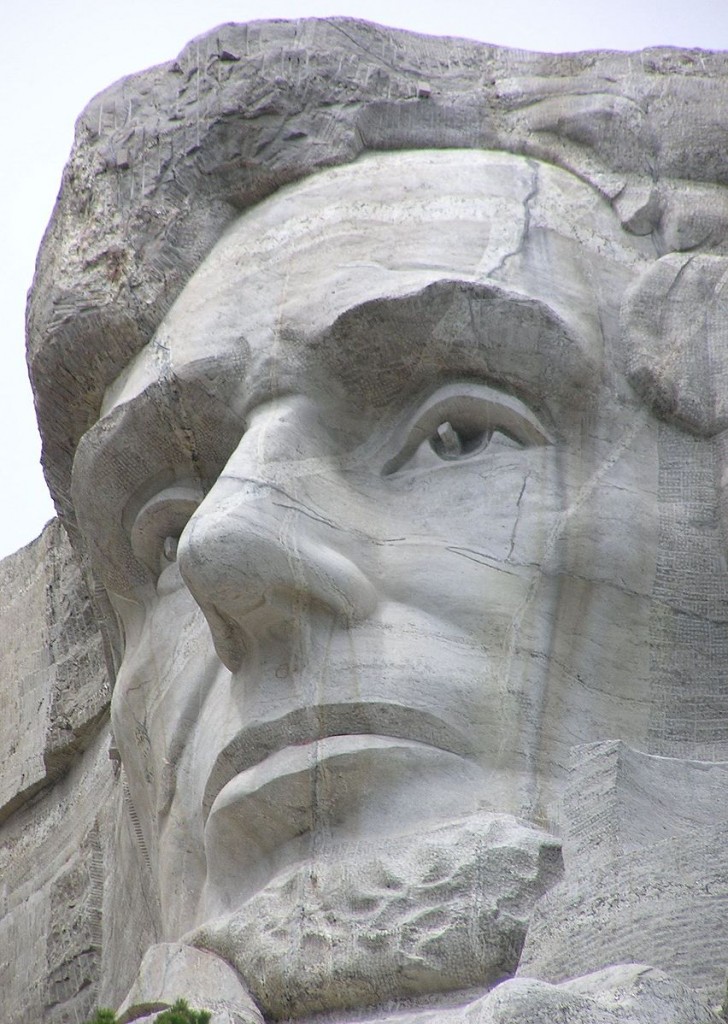

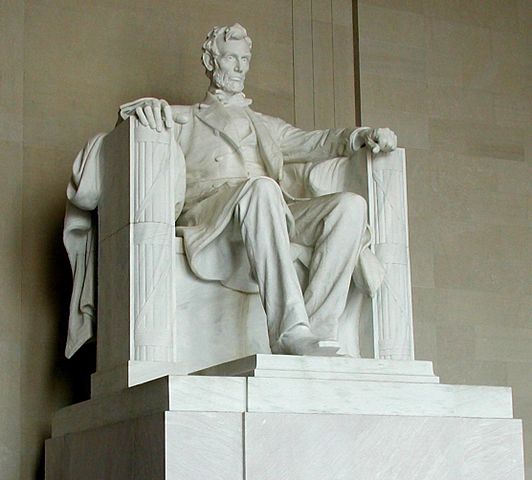

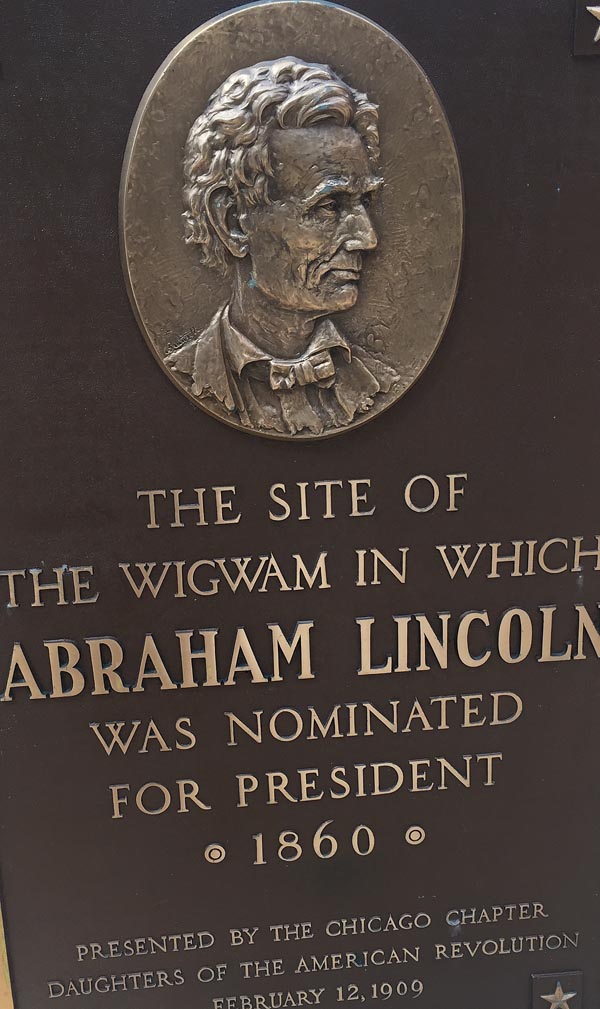

1 Comment